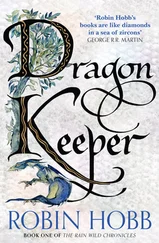Deerskin - Robin McKinley
Здесь есть возможность читать онлайн «Deerskin - Robin McKinley» весь текст электронной книги совершенно бесплатно (целиком полную версию без сокращений). В некоторых случаях можно слушать аудио, скачать через торрент в формате fb2 и присутствует краткое содержание. Жанр: Старинная литература, на русском языке. Описание произведения, (предисловие) а так же отзывы посетителей доступны на портале библиотеки ЛибКат.
- Название:Robin McKinley
- Автор:
- Жанр:
- Год:неизвестен
- ISBN:нет данных
- Рейтинг книги:4 / 5. Голосов: 1
-
Избранное:Добавить в избранное
- Отзывы:
-
Ваша оценка:
- 80
- 1
- 2
- 3
- 4
- 5
Robin McKinley: краткое содержание, описание и аннотация
Предлагаем к чтению аннотацию, описание, краткое содержание или предисловие (зависит от того, что написал сам автор книги «Robin McKinley»). Если вы не нашли необходимую информацию о книге — напишите в комментариях, мы постараемся отыскать её.
Robin McKinley — читать онлайн бесплатно полную книгу (весь текст) целиком
Ниже представлен текст книги, разбитый по страницам. Система сохранения места последней прочитанной страницы, позволяет с удобством читать онлайн бесплатно книгу «Robin McKinley», без необходимости каждый раз заново искать на чём Вы остановились. Поставьте закладку, и сможете в любой момент перейти на страницу, на которой закончили чтение.
Интервал:
Закладка:
Those dreams were the worst; but she had nightmares as well that the painting of the most beautiful woman in seven kingdoms, which now dominated the receiving-hall, came to life, stepping down from its frame to press a tiny, shapely foot into the cushion of her husband's throne, alone now on its dais, her own great chair having been removed; and her foot left no dint. But the look she bent upon her daughter was only slightly less terrible than the king's. Six months after the queen's death the painting had been hung behind the king's throne (this too had been specified by the queen, both the space of time and the location), and since the day of its unveiling Lissar had avoided the receiving-hall almost as assiduously as she avoided meeting her father's gaze.
But Lissar was young, and he was her father, and the king; there was little she could do but try to avoid her avoidance being noticed. She would have cultivated a fondness for the company of her ladies, if it had come more easily to her; her shyness in the company of ministers and courtiers came very easily indeed. She played tag and hide-and-seek with Ash in the garden; and she went for walks with Viaka. There was for a time some jealousy from the other ladies about Viaka's ascendence over them; but when they found that Lissar gave her preferred companion no rich presents, nor insisted on her being seated at the high table with her during banquets, the jealousy ebbed. It disappeared for good when they learned-for Viaka, who was rather cleverer than she pretended, told them-that Lissar gossipped not at all and, indeed, at times barely spoke. If all Viaka gained in her congress with the princess was the loss of time that might have been more gainfully expended elsewhere, well then, there was little to be said after all for being the princess's apparent confidante. And the waiting-women all nodded together, and argued over whose turn it was to sleep in the royal bed-chamber that Lissar never set foot in.
The maid-servant who raked out the old embers and lit the fire in Lissar's bedroom (which was kept burning even in the summer, against the damp) more than once found the princess in her wild garden at an unfashionably early hour. The maid-servant had initially been alarmed by this, because it might mean the princess would require her to get up even earlier, and mend her fire before she arose. But the princess never made any such suggestion, and the maid-servant, cautiously, went on as she had begun, without telling anyone what she saw.
Once Lissar was stepping back indoors as the maid entered the little rose-colored room, and impulsively Lissar held out the twig she had between her fingers. She had bruised the leaves, and from her hand arose a wonderful smell, both sweet and pungent. "Do you know what this is?" she asked.
"No, splendor," the maid said; but she was caught for a moment by the wonderful scent and stood quite still, her bundle of sticks for the fire dangling unregarded from her hands. She remembered herself in a moment and ducked her head before the princess could have a chance to notice that she was not attending to her business; for the palace housekeeping was run under a stern eye.
The princess was having no such thoughts, but stood with her head a little bowed, twirling the little sweet leaves in her fingers. The maid, who had come to like her a little, in a wary and disbelieving way, said, on her knees by the hearth, "My aunt would know-splendor," and then crouched lower in the ashes, fearful that she had been too bold. The fact that Lissar never asked her to do anything was almost as alarming as if she asked her to do too much. She heard the stories from some of the other maids about some of the other palace ladies, and worried that perhaps when the blow came it would be stunning. Ash ambled up behind her and licked the back of her neck, and she started.
"Your aunt?" said Lissar. "It's only Ash," she added, as Ash did it again. "Do you mind it?" she said, not thinking that her maid would never tell her "no" but only in amazement that anyone might wish to reject Ash's advances. Lissar forgot to wear her cynicism about court life all the time, and she saw everything Ash did through a haze of devotion. The maid was saved from having to frame any reply by Ash's ceasing her attentions and climbing on the bed for a nap, having first scrabbled the coverlet into a twist to her shape and liking. The maid did not mind Ash licking the back of her neck-she'd grown up with dogs-but was braced against the possibility that her volunteering a comment might be counted too forward.
"Could I meet your aunt?" said Lissar, taking the maid's breath away.
"You can do anything, splendor," said the maid without irony, stating the truth as she saw it.
"Will you ask her to come to me, then?" said Lissar, equally without irony. She did know that she was asking something a little out of the way, but she did not know how the world looked to a young maid in a new job, especially a job involving royalty. The maid was silent for a moment, at the enormity of the breach of courtly order she was about to commit in response to this mildly spoken command, and wondered what Layith, who was mistress to all the maids, would say if she found out. "Yes, splendor," she said, accepting her fate.
The maid, who was young and simple and came from a simple family, merely appeared one morning about a fortnight later with a small woman, wearing a great many shawls, at her side. This was Rinnol; and Rinnol was a gardener, an herbalist, a midwife. Rinnol had never been to court, nor wanted to, and was very cross with her younger sister's girl, and inclined to refuse the summons. But Lissar's maid, panic-stricken at what might happen to her if she did not fulfill the princess's orders, talked her into it, she and her mother both, who thought that she had done a good thing for her daughter by sending her up to the palace.
So Rinnol came, prepared grudgingly to be polite but little else, for she had as little understanding of the breach of court etiquette as Lissar herself did. She found, to her surprise, a girl the age of her niece who was perfectly willing to get down on her knees and dig in the dirt with her fingers, despite the possibility of damp soft earthworms and small jointed things with many legs, and getting smudges on one's face and clothing. So Rinnol began to teach the princess which green things were weeds to pull out and which were things to be kind to, and she taught her the names of many and the uses of some, returning to the palace every few days for another lesson, without any words of any such arrangement ever passing between herself and Lissar. After that first day she simply stumped in, up the grand sweep of low stairs from the grand smooth garden that lay on the other side of the wall, through. the marble hallway, behind the statue with the homicidal draperies, and through to Lissar's tower room; and the waiting-women learned to bear her indifference because they had to, although she was one more mark against the princess in their minds. But Rinnol had found that she enjoyed the lessons, for Lissar was a good pupil.
Lissar surprised herself in this, since she had been given so few lessons to learn in her life she did not know that she was quite able to learn, and was further surprised to find that she could like learning besides. Hurra had taught her her letters, but those lessons had been given her grudgingly, and that she learned them seemed almost cause for shame. She knew how to ride a horse, so long as the horse was reasonably cooperative, and how to curtsey, and how to dance, which she believed she disliked, for she had never danced with a friend. But these things had not engaged her. She was stiff with Rinnol at first, and Rinnol with her, and Rinnol was not a cheerful personality, as Viaka was. Viaka, after one or two meetings, avoided Rinnol; plantlore did not interest her, and Rinnol was herself so dour. But Rinnol, like many people who follow a vocation and know they do well by it, was won over by Lissar's attention.
Читать дальшеИнтервал:
Закладка:
Похожие книги на «Robin McKinley»
Представляем Вашему вниманию похожие книги на «Robin McKinley» списком для выбора. Мы отобрали схожую по названию и смыслу литературу в надежде предоставить читателям больше вариантов отыскать новые, интересные, ещё непрочитанные произведения.
Обсуждение, отзывы о книге «Robin McKinley» и просто собственные мнения читателей. Оставьте ваши комментарии, напишите, что Вы думаете о произведении, его смысле или главных героях. Укажите что конкретно понравилось, а что нет, и почему Вы так считаете.












